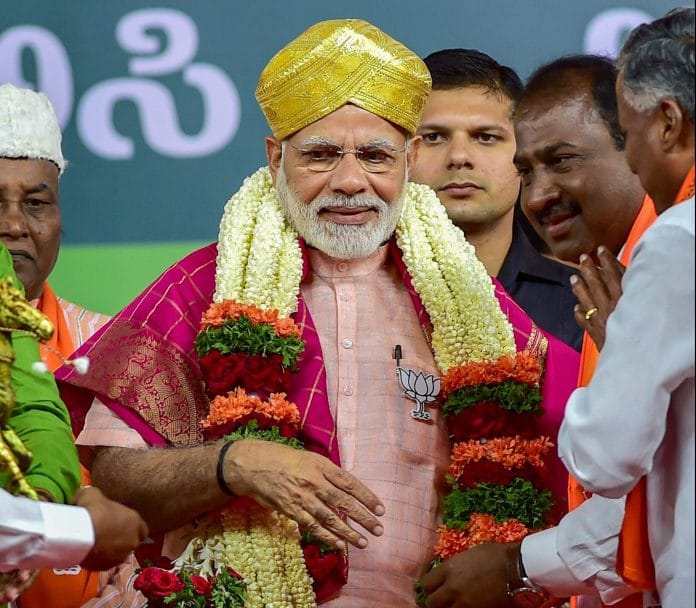Indians have ceased to be ‘argumentative’; instead, they have started surrendering. There’s no intellectual debate; only status-seeking, clever discourse.
The very popular, but quite cynical, perception of politics, particularly in the middle class, is that it is ugly, conspiratorial, and power-centric. Politicians are seen as corrupt, uneducated thugs, who are ignorant of issues. Elections are often described as unnecessarily expensive, and a wasteful exercise. Most people on the street say that there is not much difference between the one party and its candidates or another. “Our fate does not change anyway,” is a common refrain.
And yet, ironically, most elections have 65 to even 80 per cent voter turnout. If there is indeed such deep hatred about politics and politicians, then why do people come out and vote in such large numbers? Why do they, despite such manifestly expressed contempt towards politicians, invite them to grace various occasions?
Even media houses, which generally spread negative notions about the political class through their channels or newspapers, often seek politicians as ‘chief guests’ for functions or conclaves. The present Prime Minister does not hold press conferences, but goes to inaugurate such events or to distribute awards. He then pontificates about the declining moral standards in society, gives sermons to scientists, educates mediapersons about their profession, and even urges them to work without fear or favour. Even those who dislike or hate him are seen to be in awe of him.
The organisers of these events belong to the same cynical middle class. If they were true to their belief, they would not invite politicians with considerable respect, honour or awe. Are they in awe of the state power, or feel obliged to the government for providing a variety of support systems? Or are they, at least some of them, simply afraid of income tax authorities and the Enforcement Directorate, or diabolical intelligence agencies?
The point is that politics and politicians occupy a central place in our society. This paradox needs to be understood.
The contrast with America
Though politics and the ‘state’ have a special place in all democratic societies, in India they are omnipresent. In Europe and America, be it the Oscars or the Grammys, Berlin or Cannes film festivals, international football matches or literary gatherings, Pulitzer or other professional awards, none are generally given away by ministers.
Most professionals and their representative bodies are autonomous and politically distant from power. But Bollywood stars often are so servile that it borders on obscenity. It is not so in the US or in Europe. That is why Maryl Streep or Michael Moore, Bob Dylan or Seymour Hersh, Paul Krugman or David Remnick could take their stand on issues of war, racism, or guns.
In India, that kind of autonomy and individuality are seen vary rarely. Prasoon Joshi cannot become Bob Dylan, nor can Arnab Goswami match Dan Rather.
Everybody, be it a lawyer, doctor, mediaperson or bureaucrat, must have a political opinion. This is essential for democracy. Indeed, all mediapersons have an opinion, bias or political prejudice, though they may pretend to be “objective” and claim independence.
Politicians need not be adversaries, but also must be kept away from the culture of ‘bhakti’ (devotion), which Narendra Modi has given rise to. India has always had a tradition of ‘bhakti’, but when that goes into politics, it acquires fascist character. Those who deviate from it are the enemies of the nation, or of Hindu faith. They are to be trolled, abused in public, or even killed.
It is necessary, therefore, to make the liberal idea fully operational and truly democratic. The Congress is often criticised for the congenial disease of “sycophancy”. But if one sees the same sycophantic tendency, in an even worse and more sinister form under the Modi regime, it does not attract same strident criticism. The bureaucracy has transformed this abject sycophancy into a fine art. It is not so in the US, to make a comparison as the intelligentsia does. The Trump administration is being confronted by the American bureaucracy every day; ministers and officers are resigning in protest and going public.
Not inspired by America anymore
In India, one often hears, in hushed tones of course, ridicule and sharp criticism of Modi’s style of governance. His high-pitched and content-less speeches and public ranting, his thoughtless policies and his ignorance of history, economics and science are the butt of jokes in the drawing rooms. But the same bureaucracy is enveloped by some kind of fear psychosis. It is impossible in India to see the kind of resistance, even revolt, that one is witnessing in the US.
In India, the liberals too are “crony liberals”, the mirror image of “crony capitalists”. Indians have ceased to be “argumentative”; instead, they have started surrendering. As a result, there is no argument, only shouting; no intellectual debate, only pretentious and status-seeking, clever discourse.
In this claustrophobic socio-cultural atmosphere, it is difficult to grow as a civilisation, as a modern culture, as a “New India” about which Modi keeps on talking about. Nobody has any idea of the so called “New India”, just as no urban planner has any notion of a “smart city”.
We are living in the world of mindless words and a vacuum of ideas. Our politics is a reflection of that emptiness.
Kumar Ketkar is a former editor and Congress member of Rajya Sabha.






